 Article Contributors
Article Contributors

Gambling in Canada
In 1985, the federal government further decentralized control by allowing provinces to govern their own gambling activities. This meant that each province had the power to design its own gambling laws. Unfortunately, this shift did not amend the federal criminal code, which led to further complexities regarding gambling regulations.
British Columbia saw the launch of its first fully legal online casino in 2012, providing residents with access to a variety of casino games and poker. As of now, Canada boasts over 80 physical casinos, and on the online front, Canadians can choose from thousands of gaming websites, including those that offer sports betting. table games What are the specific gambling regulations applicable in each province of Canada?
Canada is divided into ten provinces, each responsible for creating and enforcing its own gambling regulations, covering both physical locations and online platforms. All gambling establishments, including casinos and bookmakers, must adhere to the regulations set by the province in which they operate. While many laws are similar across the provinces, the types of permitted gambling and legal gambling age can vary.
In British Columbia, you must be at least 19 to enter a casino or engage in any gambling activities. Gambling options available in the province include playing in casinos, buying lottery tickets, participating in online gambling, and betting on horse races, all of which are lawful. lotteries Quebec is home to four impressive land-based casinos, each situated in beautiful areas and featuring lavish designs. They offer a diverse range of gaming options. For those who prefer the convenience of gaming from home, it's worth noting that online casino gambling is fully legal in Quebec as well.
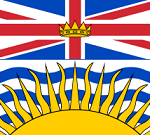 Gambling regulations in British Columbia
Gambling regulations in British Columbia
Ontario stands out as the sole province in Canada that grants licenses to private online gambling operators. Revenue generated from gambling is partially reinvested into local communities by the Ontario Lottery and Gaming Corporation (OLG), making casinos function both as commercial enterprises and charitable institutions. Additionally, slot machines and other gaming options are available at racetracks, which operate as smaller casinos. Online gaming is also legal in Ontario.
Play at casinos in British Columbia
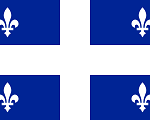 Gambling regulations in Quebec
Gambling regulations in Quebec
Although gambling is permitted in Alberta, many online casinos are managed by international operators, some of which are overseen by global gaming regulators. Alberta features 20 land-based casinos, including 5 operated by First Nations, while the remaining 15 are not associated with reservations. The legal gambling age in Alberta is 18, which aligns with the regulations in Manitoba and Quebec.
Play at casinos in Quebec
 Gambling regulations in Ontario
Gambling regulations in Ontario
Surprisingly, despite being the second smallest province, Nova Scotia has a significant percentage of its population engaged in gambling, both at land-based establishments and online. The minimum age for gambling here is 19, consistent with most provinces. However, a notable limitation is that residents can only access ALC.ca sites, resulting in a restricted range of gaming options.
Check out the best casinos in Ontario
 Gambling regulations in Alberta
Gambling regulations in Alberta
Saskatchewan is home to 9 physical casinos that feature a wide selection of slot machines, table games, and poker. While the only legalized form of gambling officially sanctioned in Saskatchewan is the provincial lottery, the lack of laws preventing operators from outside the province allows external gambling platforms to cater to local residents.
Play at casinos in Alberta
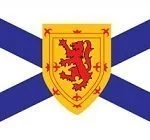 Gambling regulations in Nova Scotia
Gambling regulations in Nova Scotia
Manitoba has a rich offering of online gambling options, allowing residents to enjoy gaming on both desktop and mobile devices. While the legal framework surrounding online gambling remains somewhat ambiguous in the province, traditional formats like lotteries, bingo, and land-based gambling are clearly permitted.
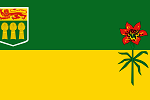 Gambling regulations in Saskatchewan
Gambling regulations in Saskatchewan
The New Brunswick Lotteries and Gaming Corporation (NBLGC) serves as the provincial authority that supervises a majority of gambling activities. Although there are only two physical casinos in the province, lotteries, harness racing, and charitable gaming are prevalent. Online gaming is also allowed.
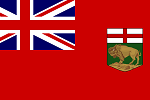 Gambling regulations in Manitoba
Gambling regulations in Manitoba
As the smallest province in Canada, Prince Edward Island has one of the country’s lowest gambling participation rates. Nonetheless, it does offer a reasonable assortment of gambling options, from land-based casinos to sports betting and online operators. With only two physical betting locations, residents may find better variety through online channels.
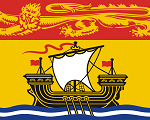 Gambling regulations in New Brunswick
Gambling regulations in New Brunswick
Residents in Newfoundland and Labrador have limited options for land-based gambling, with just one casino and a smaller racino that combines horse racing with a few casino games. Gambling appears to welcome less interest here compared to other provinces. Nevertheless, the good news is that online gambling remains accessible within the province, allowing individuals to engage in gaming over the internet.
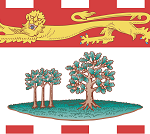 Gambling regulations in Prince Edward Island
Gambling regulations in Prince Edward Island
Distinct regulations for each province and territory
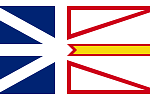 Gambling regulations in Newfoundland and Labrador
Gambling regulations in Newfoundland and Labrador
Most provinces and territories operate autonomously, which grants them the authority to establish their own gambling laws and regulations. Consequently, the rules surrounding gambling can differ noticeably from one region in Canada to another.
Taxation is generally only a concern for individuals who gamble professionally, irrespective of their location across Canada. However, the tax rates can vary among the ten provinces and three territories.
Quebec imposes the highest tax rates across Canada . For taxable income up to $43,790, a rate of 15% applies. The next segment of income up to $43,785 is taxed at 20%, and an additional 24% is charged on income exceeding $18,980. Income over $106,555 is subjected to a tax rate of 25.75%.
Meanwhile, Nunavut has the lowest tax rates, with a mere 4% tax on the first $45,414, a 7% rate on the subsequent $35,415, and 9% on the next $56,838. For earnings in the six-figure range, amounts exceeding $147,667 are taxed at 11.5%. These often-complex tax rates apply specifically to professional gamblers.
As previously mentioned, online gambling regulation in Canada is predominantly managed at the provincial level. Each province has a designated regulatory body tasked with overseeing gambling activities, including online gaming. Some notable authorities are:
British Columbia: British Columbia Lottery Corporation (BCLC)

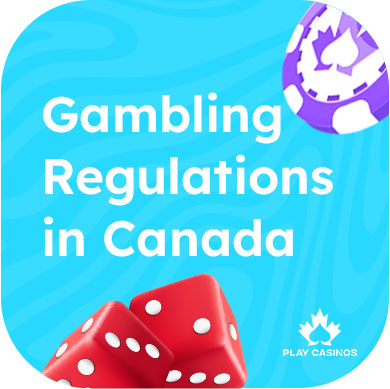
Key Authorities
Alberta: Alberta Gaming, Liquor & Cannabis (AGLC)
- Ontario: Alcohol and Gaming Commission of Ontario (AGCO)
- Quebec: Loto-Quebec and Kahnawake Gaming Commission (KGC)
- New Brunswick, Nova Scotia, Prince Edward Island, Newfoundland and Labrador: Atlantic Lottery Corporation (ALC)
- Manitoba: Liquor, Gaming and Cannabis Authority of Manitoba
- Saskatchewan: Saskatchewan Liquor and Gaming Authority (SLGA)
- These authorities are responsible for implementing and enforcing gambling laws within their jurisdictions. However, numerous online casinos serving Canadian players operate under licenses from international regulatory organizations.
- In provinces like Quebec, playing at online casinos that hold international licenses—granted by established authorities such as the Malta Gaming Authority or the UK Gambling Commission—is viewed as legal and secure. These licenses ensure that operators adhere to stringent international standards regarding player safety and fairness in gaming.
Conversely, in provinces like Ontario, regulations mandate that players can only engage with online casinos that are authorized by provincial authorities. It is crucial for players to verify the licensing status of online casinos based on their province of residence to ensure compliance with local regulations.
Who regulates the issuance of licenses for online casinos?
Every legal gambling establishment, whether physical or online, must possess a valid gambling license . Such licenses are issued by various independent authorities, both local and international. These are designated governmental bodies that have the authority to regulate and license online gambling operators. Trusted independent regulatory bodies are essential for issuing gambling licenses.
Leading licensing authorities include the
Kahnawake Gambling Commission, the
The Malta Gaming Authority (MGA) , functioning as an independent regulator, oversees all gaming activities across multiple sectors such as remote gambling, lotteries, casinos, sports betting, and games of skill in Malta. Malta Gaming Authority , iGaming Ontario , the UK Gambling Commission iGaming Ontario serves as the provincial authority managing online gambling in Ontario. Designed to ensure the safety and security of players while also licensing online operators, iGaming Ontario plays a pivotal role in generating funding for provincial projects. For insights into the top online casinos available in the province, refer to our Gibraltar Gambling Commission , and Curacao eGaming .
MGA
The UK Gambling Commission (UKGC) is responsible for licensing and overseeing businesses engaged in gambling services within Great Britain. It operates according to the Gambling Act 2005, which was established to regulate commercial gambling activities like the National Lottery in the UK. The primary focus of the Commission is to ensure that gambling organizations comply with established standards. Before granting a license, the UK Gambling Commission evaluates various factors, including identity, ownership, integrity, competence, and any criminal history.
iGaming Ontario
Canada's gambling regulations have evolved significantly, particularly with the establishment of structured legal casinos by 2025. Ontario Casinos page.
UKGC
Visual representation of gambling regulations in Canada.
KGC
Between 1892 and 1969, there were no legal casinos in Canada, and gambling on any products was largely prohibited, limited only to charitable raffles, lotteries, and horse races. The turning point came in 1969 when the federal government permitted provinces to operate their own lotteries, recognizing it as a viable avenue for the funding of various local initiatives. Montréal In 1985, major changes were enacted as the federal government granted provinces full authority to govern gambling activities. This move allowed each province to formulate its own gambling legislation. However, the federal criminal code remained unchanged, leading to further complications in understanding the gambling framework.
- Yukon Gold
- Zodiac Casino
- Appolo Slots
- Golden Tiger Casino
- Villento Casino
- Grand Mondial Casino
Curacao
Fast forward to 2012, the first fully legalized online casino was launched in British Columbia, providing residents with access to diverse casino games and poker options. Today, Canada boasts over 80 physical casinos across the country, featuring a variety of slot machines and gaming experiences. Additionally, online casinos have exploded in popularity, offering Canadians a plethora of gambling platforms, many of which also include sports betting.
- Slototop Casino
- BetPat Casino
- Pokie Place Casino
Gibraltar
What specific gambling regulations are enforced in each province of Canada?
- Betfair Casino
- William Hill Casino
- Paddy Power Casino
- Mansion Casino
Licensing Requirements
Canada consists of ten provinces, each in charge of its own gambling regulations concerning both physical and online gambling. All casinos and betting operators must adhere to the laws established by their respective provinces. While there are similarities in the regulations from one province to another, there can be variations in permissible gambling types and the legal gambling age.
- In British Columbia, individuals must be at least 19 years old to gamble or enter a casino. The province permits a range of gambling activities, including casinos, lottery ticket purchases, online gambling, and horse race betting.
- Quebec is home to four impressive casinos, nestled in breathtaking natural settings and adorned with lavish designs. Their gaming options cater to a wide array of preferences. If you're more inclined to gamble from the comfort of your home, online casino gaming is also fully legal in Quebec.
- Ontario stands out as the only province that provides licenses to private online gambling operators. The Ontario Lottery and Gaming Corporation (OLG) reinvests a portion of gambling proceeds back into local communities, making these establishments both commercial enterprises and charitable contributors. Additionally, racetracks across the province offer slot machines, effectively turning them into smaller-scale casinos. Online gambling is also permitted in Ontario.
- While gambling is lawful in Alberta, many online casino platforms are operated by foreign companies, some of which are monitored by international regulatory organizations. Alberta has a total of 20 brick-and-mortar casinos, five of which are owned by First Nations, while the remaining fifteen are private. The legal gambling age in Alberta is 18, same as in Manitoba and Quebec.
- Despite being the second smallest province in Canada, a significant number of Nova Scotians participate in both terrestrial and online gambling. The legal age for gambling in Nova Scotia is 19, aligning with most provinces; however, residents are limited to ALC.ca websites for online gaming, which restricts the range of available games.
Player Protection Measures
Saskatchewan features nine land-based casinos, providing a diverse mix of slot machines, table games, and poker. Presently, only the provincial lottery is legalized as a form of gambling. Nevertheless, existing laws do not prevent gambling operators from other regions from catering to Saskatchewan residents.
- Manitoba offers a wide selection of online gambling platforms, allowing residents the flexibility to enjoy gambling via both desktop and mobile devices. Although the regulations surrounding online gaming in the province are somewhat ambiguous, traditional gambling activities like lotteries and bingo, as well as land-based gambling, are allowed.
- The New Brunswick Lotteries and Gaming Corporation (NBLGC) oversees most gambling operations in the province. While there are merely two physical casinos available, there is a robust culture of lotteries, harness racing, and charitable gambling. Online gaming activities are also permitted.
- As Canada’s tiniest province, Prince Edward Island has one of the lowest gambling participation rates in the nation. Still, a diverse assortment of gambling options exists, which include land-based casinos, sports betting, and online gambling platforms. However, there are only two physical betting locations, making online gambling a more practical choice for variety.
Residents of Newfoundland and Labrador have limited options for land-based gambling, with only one casino and a smaller racetrack that provides a few casino games. Gambling doesn’t seem to hold as much appeal for locals compared to other provinces. Fortunately, online gambling remains unregulated here, allowing access to various online gambling options. Responsible Gambling Center Provincial and territorial variations in gambling rules
Since provinces and territories largely operate autonomously, they are empowered to create and enforce their own gambling laws. Consequently, rules can differ greatly depending on the region you're in across Canada.
Taxation becomes relevant primarily for professional gamblers, as mentioned earlier, regardless of location in Canada. However, tax obligations do differ among the ten provinces and three territories. Quebec Flag Quebec imposes the highest tax rates in the country . The initial $43,790 of taxable income incurs a tax rate of 15%. The subsequent $43,785 is taxed at a rate of 20%, and if you earn an additional $18,980, that portion is taxed at 24%. Income surpassing $106,555 is taxed at a rate of 25.75%.
| Play at | casinos in Quebec | Ontario Flag | Check out the |
| best casinos in Ontario | Alberta Flag | 6 | 3,000 |
| Play at | casinos in Alberta | 30 | 4,300 |
| Nova Scotia flag | Saskatchewan flag | 6 | 913 |
| Manitoba flag | Flag_of_New_Brunswick | 25 | 9,900 |
| Prince Edward Island Flag | Newfoundland and Labrador flag | 6 | 8.500 |
| Gambling Regulations | Gambling Regulations | 8 | 909 |
Regulations
In contrast, Nunavut offers the lowest rates, where the first $45,414 is taxed at 4%, the next $35,415 at 7%, and the following $56,838 at 9%. For those earning over six figures, each portion over $147,667 is taxed at a rate of 11.5%. These complex rates specifically apply to professional gamblers.
As previously mentioned, control over online gambling regulations in Canada lies primarily at the provincial level. Each province has an appointed regulatory body responsible for overseeing both in-person and online gambling activities. Notable authorities include:
British Columbia: British Columbia Lottery Corporation (BCLC)
Alberta: Alberta Gaming, Liquor & Cannabis (AGLC)
| Key Authorities | Malta Gaming Authority |
| iGaming Ontario | 18 |
| the UK Gambling Commission | 19 |
| Gibraltar Gambling Commission | 18 |
| , and | 19 |
| Curacao eGaming | 19 |
| MGA | 19 |
| iGaming Ontario | 19 |
| Ontario Casinos | 19 |
| page. | 18 |
| UKGC | 19 |
Ontario: Alcohol and Gaming Commission of Ontario (AGCO)
Quebec: Loto-Québec and Kahnawake Gaming Commission (KGC)
KGC
- New Brunswick, Nova Scotia, Prince Edward Island, Newfoundland and Labrador: Atlantic Lottery Corporation (ALC)
- Manitoba: Liquor, Gaming and Cannabis Authority of Manitoba
- Saskatchewan: Saskatchewan Liquor and Gaming Authority (SLGA)
- These authorities ensure adherence to gambling laws within their regions. Nevertheless, numerous online casinos operating within Canada are licensed by international regulatory bodies.
In provinces such as Quebec, playing at online casinos with international licenses, like those issued by reputable organizations such as the Malta Gaming Authority or the UK Gambling Commission, is viewed as both legal and secure. Such licenses guarantee that the operators meet rigorous international standards for player safety and gaming fairness.
In other provinces like Ontario, regulations mandate that players should gamble only at online casinos that possess licenses from provincial authorities. Players must check the licensing status of online casinos based on their province to confirm compliance with local laws.
Who is responsible for issuing licenses for online casinos?
All authorized casinos, regardless of being land-based or online, must secure a gambling license. These licenses are granted by various independent regulatory bodies, both at local and international levels. Such licenses originate from governments that have implemented legislation granting them the power to regulate and license online gambling businesses. Trusted independent regulatory authorities are capable of issuing gambling licenses.
Leading licensing bodies include the
Montréal
the Kahnawake Gambling Commission, the
- The Malta Gaming Authority (MGA) serves as an independent regulatory agency overseeing all gaming activities, including remote gambling, casinos, lotteries, sweepstakes, bingo, sports betting, and skill-based games in Malta.
- iGaming Ontario is the provincial body that regulates online gambling within the province. Established to oversee and license online gaming operators, iGaming Ontario strives to create a safe gaming environment for players while generating revenue to support provincial initiatives. For a compilation of premier online casinos in the province, visit our
- The UK Gambling Commission (UKGC) is tasked with licensing and regulating entities and personnel involved in providing gambling services in Great Britain. The Commission functions under the Gambling Act of 2005, which it was created to enforce, ensuring compliance for commercial gambling, including the National Lottery in Britain. Before the UK Gambling Commission grants a gambling license, several factors are taken into account, such as ownership identity, integrity, competency, and criminal background.
Curacao
Pokie Place Casino
Visual Representation of Gambling Regulations in Canada
Between the years 1892 and 1969, there were no legal casinos in Canada. During this period, gambling was largely prohibited, allowing only specific activities such as raffles meant for charitable purposes, and betting on horse races. However, in 1969, the federal government made a pivotal decision to authorize provinces to manage their own lotteries, recognizing this as a viable means to support local initiatives.
In 1985, the federal government transferred the authority over gambling to individual provinces. This meant that each province could establish its own gambling laws. Unfortunately, the federal criminal code remained unchanged, which contributed to further confusion within the gambling landscape.
Mansion Casino
The launch of the first entirely legal online casino in British Columbia occurred in 2012, marking a significant milestone, as it offered residents the opportunity to engage in casino games and poker online. As of now, Canada boasts over 80 brick-and-mortar casinos, where players can enjoy a variety of slot games and more. Additionally, Canadians can access thousands of online casino sites, many of which also provide sports betting options.
What specific gambling regulations are in place for each Canadian Province?
Licensing Requirements Player Protection Measures ,
Canada consists of ten provinces, each with the autonomy to create its own set of regulations concerning both in-person and online gambling. All gambling establishments, including casinos and betting shops, are mandated to comply with the rules defined by their respective provincial authorities. While regulations show some similarities across provinces, discrepancies exist depending on the types of gambling permitted and the legal betting age.
In British Columbia, individuals need to be at least 19 years old to enter a casino or engage in gambling activities. The local laws permit activities like playing at casinos, purchasing lottery tickets, participating in online gambling, and betting on horse races.
Quebec is home to four remarkable land-based casinos that stand out among breathtaking natural scenery, featuring luxurious designs. These casinos offer a wide array of gaming choices. For those who prefer playing in the comfort of their homes, online casino gambling is also completely legal in Quebec.
Ontario holds the distinction of being the only province in Canada that grants licenses to private online gambling operators. A portion of the revenue generated from gambling is reinvested into community projects by the Ontario Lottery and Gaming Corporation (OLG), which is why casinos are viewed as both profit-making and charitable ventures. Additionally, racetracks in Ontario host slot machines and various gaming options, effectively serving as smaller casinos, and online gambling is permitted throughout the province.
Although gambling is legally endorsed in Alberta, most online casino platforms operate under foreign licenses, with some being regulated by international gaming authorities. Alberta has 20 land-based casinos, with five being operated by First Nations and the remaining fifteen from non-reservation entities. The legal age for gambling in this province is 18, aligning with the regulations of Manitoba and Quebec.
As the second smallest province in Canada, Nova Scotia surprisingly features a significant proportion of its residents engaging in both land-based and online gambling activities. While the legal gambling age is set at 19, similar to most provinces, a notable limitation is that local residents can only access gambling through ALC.ca sites, constraining the range of games available.
Saskatchewan is home to nine land-based casinos that offer a diverse collection of slot machines, card games, and poker. Although the provincial lottery is the only officially legalized form of gambling in Saskatchewan, since regulations only pertain to operators licensed within the province, external gambling services can still cater to local residents without legal impediment. Ontario Flag In Manitoba, numerous online gambling platforms provide residents with ample opportunities to indulge in gaming through both desktop and mobile devices. Even though the official laws surrounding online gambling remain somewhat ambiguous, traditional forms like lotteries, bingo, and land-based gambling are sanctioned.
The New Brunswick Lotteries and Gaming Corporation (NBLGC) serves as the provincial regulatory body overseeing the majority of gaming activities. Despite there being only two land-based casinos, other gambling options such as lotteries, harness racing, and charitable gaming are quite prevalent. Moreover, online gaming is also permitted.Check out the, best casinos in OntarioDespite being the smallest province in Canada, it exhibits some of the lowest rates of gambling participation. Nonetheless, a variety of gambling options still exist, including land-based casinos and sports betting, as well as online platforms. However, with only two physical gambling venues available, choosing to gamble online may provide greater variety.
Newfoundland and Labrador offers limited options for land-based gambling, featuring only one casino and a smaller facility known as a ‘racino,’ which combines a racetrack with a few casino games. The overall appeal of gambling seems to be lower among residents compared to other provinces. On a positive note, online gambling remains legal, allowing residents to access various gaming options over the internet.
- casinos in Alberta
- Regulatory Variations Across Provinces and Territories
- Nova Scotia flag Saskatchewan flag Manitoba flag
- Flag_of_New_Brunswick
- Prince Edward Island Flag
Gambling Regulations
Regulations Key Authorities Provinces and territories largely manage their own affairs, which justifies their authority to establish unique laws, regulations, and guidelines pertaining to gambling. Consequently, the regulations may vary significantly based on the specific area within Canada.
Taxation on gambling only becomes a relevant concern for professional gamblers, irrespective of their location within Canada. Nevertheless, it's worth noting that tax rates can vary across the ten provinces and three territories.
the UK Gambling Commission
Quebec imposes the highest tax rates across Canada . For taxable income up to $43,790, a rate of 15% applies. The next $43,785 is taxed at 20%, while an additional $18,980 would incur a 24% tax rate. Income exceeding $106,555 faces a tax rate of 25.75%.








 Fact Checker
Fact Checker

